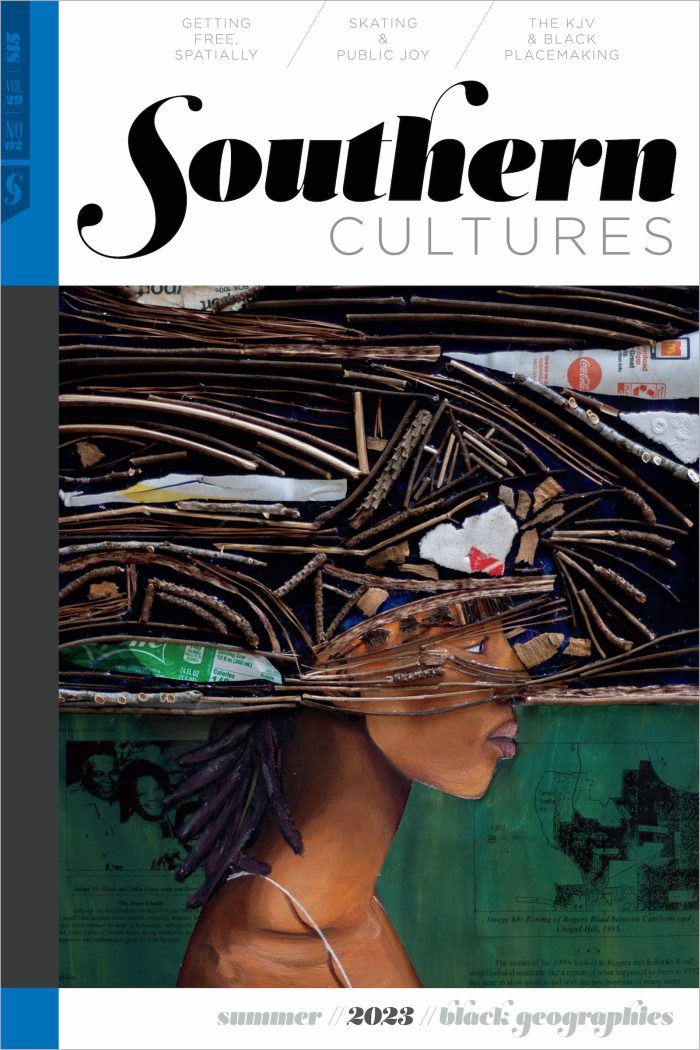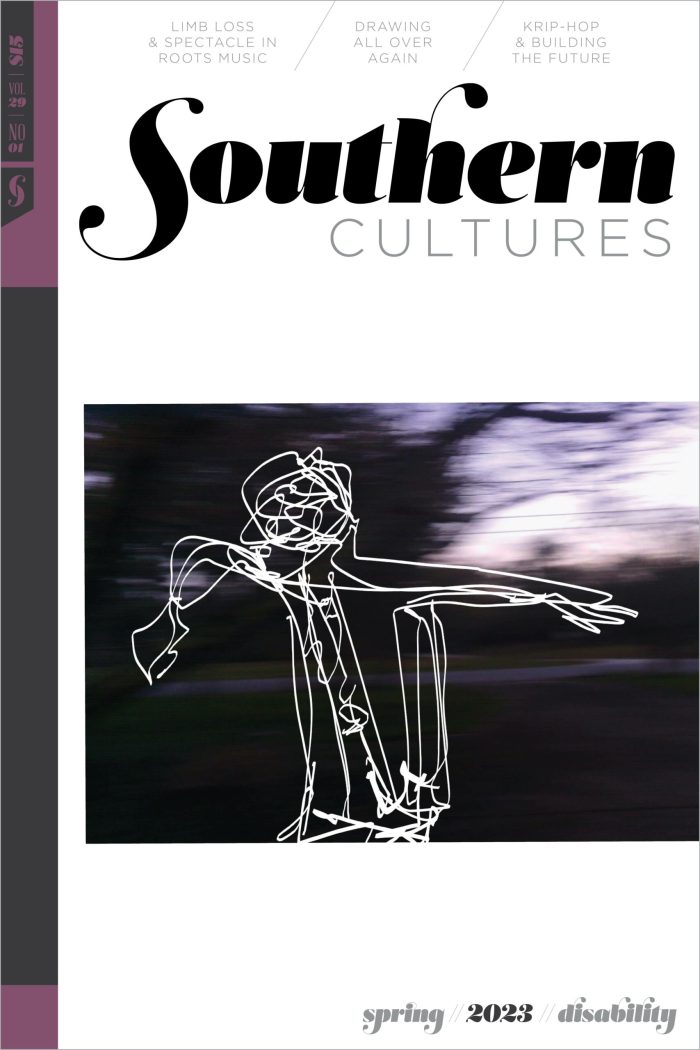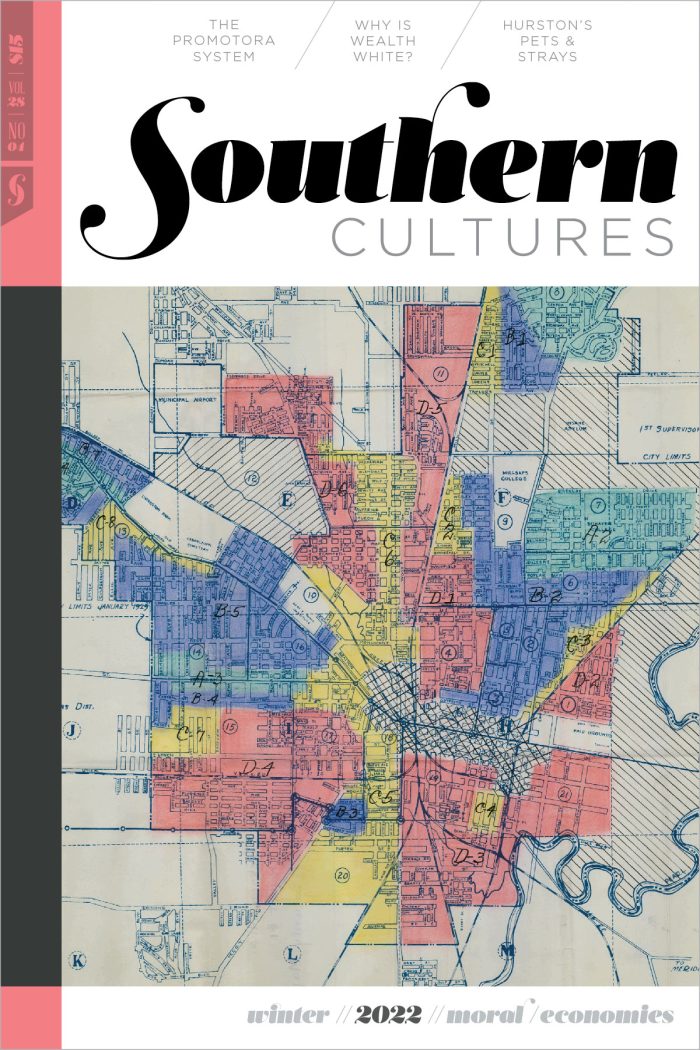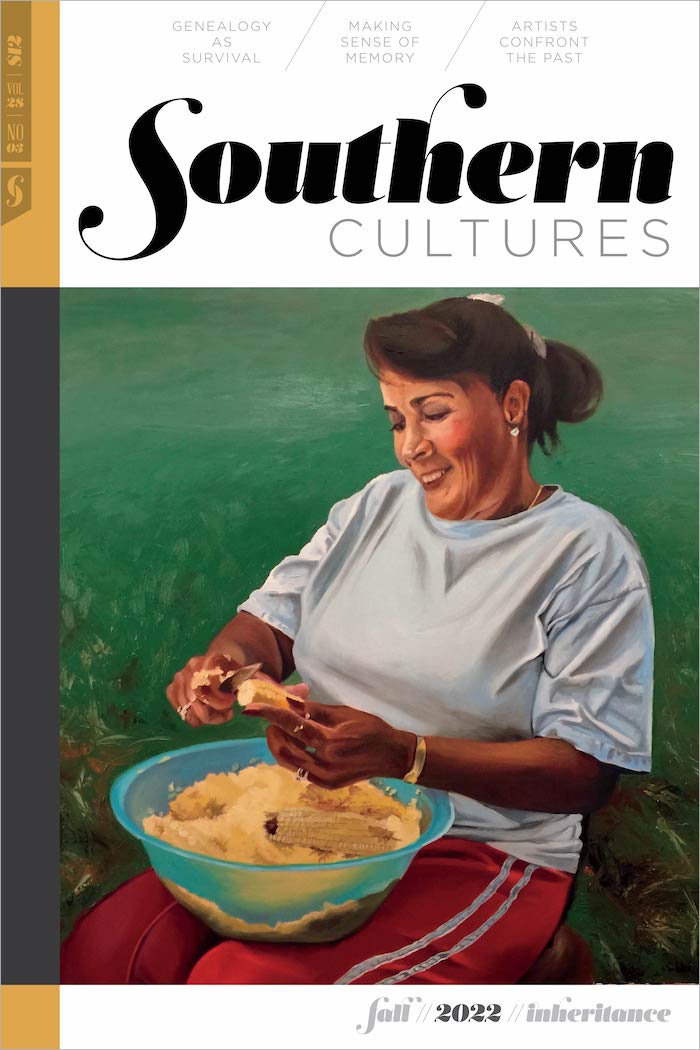BUY ACCESS
by Harry L. Watson
“Though the Hard South cannot be evaded, most southerners know there is more to the region than that. The Soft South is here as well, cheek by jowl with its evil twin. Can we have one without the other?” As W. J. Cash reminded us long ago, there are many Souths. He listed the familiar »
BUY ACCESS
by Rachel Marie-Crane Williams
“Simmons, Aycock, and Daniels used their influence, oratorial skills, and the press to create a rape scare, demonize and humiliate black men and women, spread a violent white supremacist ideology, and reclaim the North Carolina Legislature for the Democratic Party.” In the 1890s, the economic fortunes of farmers were dashed when the cotton market collapsed. »
BUY ACCESS
by John Shelton Reed
“Another attraction was what their Flo Field remembered years later as a ‘death-defying platform’ built over the roof. Reached through a window, it offered an escape from the stifling heat of a New Orleans attic, and at one party Faulkner unsuccessfully tried to persuade Field to crawl outside—four floors above the street—with him.” In October »
Memoir
by Michael McFee
Dr. Julius Hibbert: “Yes, I remember Bart’s birth well. You don’t forget a thing like . . . SIAMESE TWINS!”Lisa Simpson: “I believe they prefer to be called ‘conjoined twins.’”Dr. Hibbert: “And hillbillies prefer to be called ‘Sons of the Soil,’ but it ain’t gonna happen!”—The Simpsons, season 8, “Treehouse of Horror” In an interview »
BUY ACCESS
by Stanley L. Engerman,
Peter A. Coclanis
“How long could slavery have continued to yield adequate financial returns to owners, putting aside any benefits in terms of non-pecuniary factors, such as the consumption of power, prestige, or the love to domineer?” Although some obscurantist southerners, a century and a half after secession, still believe slavery tangential, if not incidental, to the coming »
by Mildred Council,
John Egerton,
George Tindall,
William R. Ferris,
Doug Marlette
“Some people were just nuts about them. And they also have a mystique around extraterrestrial stuff.” The Moon Pie is an icon in the American South, where both its image and its taste evoke memories of country stores and their agrarian worlds. If we Google Moon Pies, 3,060,000 (currently the number is 40,500,000) references appear »
BUY ACCESS
by Michael Chitwood
“There are miracles in this world but they are working-class, Wednesday morning miracles . . .” There are miracles in this worldbut they are working-class, Wednesday morning miraclesthat go mostly unnoticed by the priests.
BUY ACCESS
by Christopher Fowler
“Enter our story’s main character. His response to agribusiness is what makes this story unique.” This is a story of people coping with change. It reveals a dramatic shift in agricultural policy beginning around the middle of the twentieth century, which was first fueled by—and later propped up with—America’s military-industrial complex. The shift was from »
BUY ACCESS
by Harvey H. Jackson III
“There, every Wednesday, my Daddy presided over what those assembled called ‘prayer meeting,’ because that was what it wasn’t.” All across the South, Wednesday night is when the faithful gather for “prayer meeting,” that midweek pause to remind the Lord that the faithful are still faithful. However, there was a time not so very long »





